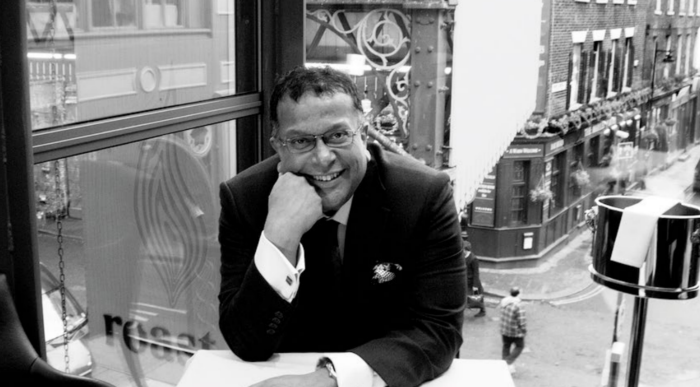British restauranteur Iqbal Wahhab knows the ins and outs of the hospitality and food industry. After years of specialization in the public relations and publishing side of it, he ventured into business and led successful restaurants of his own, becoming a major player in this field in Britain in the process.
Yet, while the world of restaurants has plenty going on to keep him busy, Wahhab makes sure he spares time for his other passions besides food. He describes himself as a “restauranteur with social meddling tendencies,” as an entrepreneur who uses the force of business for social projects.
And when he is not working on those, he expresses himself in writing, as an avid blogger and the author of two books.
Journalism and publishing launch Iqbal Wahhab in business
Before he launched the award-winning Cinnamon Club restaurant in 2001, Wahhab had a career in journalism, publishing, and public relations. At the end of the 1980s, he became a journalist working in the British press. His real entry into the food business came in 1991, when he established a public relations firm that specialized in food, drink, and restaurants.
It was this background that led him towards the launch of Tandoori Maganize in 1994. That bi-monthly magazine for the South Asian food and catering industry eventually became a leading outlet on Indian food.
After several years, Wahhab then exited the magazine in order to launch his own restaurant. In March 2001, The Cinnamon Club, an Indian fine dining restaurant, opened its doors in London, near the old Westminster library. There, Wahhab and chef Vivek Singh set out to enact their vision of serving quality Indian food with new delivery and in experimental ways inspired by French cuisine.
Their partnership in the fine dining business then bore fruit in their co-authorship of The Cinnamon Club Cookbook, which hit the shelves in 2003. The restaurant’s success helped Wahhab open his other restaurant, Roast, two years later. This time, Wahhab focused on presenting traditional British food, using the top seasonal produce Britain has to offer, which the restaurant acquires from the Borough Market hall, London’s oldest marketplace.
From Bangladesh to London
Wahhab was born in present-day Bangladesh and arrived to Britain at just 8 months old. He went on to study at the London School of Economics, focusing on business administration and management.
“I was born in Bangladesh and sell a British food experience,” he writes. “So what? Get over it… Perhaps it takes someone initially from another culture to step back and say that British food can be great.”
As he writes in his op-eds and blog, his personal experience is intricately connected to the history of post-war Britain, especially with regard to new generations of migrants and the evolution of the marketplace. Following the 1970s, what most Britons understood to be a posh dining experience “meant a French dining experience.” “At the other extreme, the dominance of American values and commercial culture have led to us being viewed as atomized economic units, typified by the hamburger: the complete, isolated meal for one.”
At Roast, Wahhab strives to “bring back memories” of family gatherings in Britain prior to the commercialization of food. “If you had a happy family upbringing, we remind you of your mother’s roast potatoes (better than ours, naturally), and if your experience was part of the decline of the family, we bring back memories perhaps locked in the attic of your mind.”
While Roast has had some critics in the past, Wahhab is grateful for those diners who understand and his happy customers.
Iqbal Wahhab earns global accolades
When Wahhab first launched The Cinnamon Club with Vivek Singh, their dream was to change the British view of Indian dining. Since those early days, Wahhab has also worked diligently to address ethnic minority underemployment in Britain, as well as in the rehabilitation of prisoners and the criminal justice system itself.
Wahhab’s restaurants employ people from all sorts of nationalities. In Britain, “there just aren’t enough chefs around who want to cook British food, but luckily there are enough ‘outsiders’ willing to take up the call, just as the Windrush generation came and built our public services after the war, he writes.
He is also a big proponent of reincorporating people locked up back into society, by training them as they serve their sentence, and help them find new passions and crafts such as food. Wahhab is a patron of Liberty Kitchen, a social enterprise that trains Pentonville prisoners in food preparation and employs ex-prisoners in food marketplaces.
His lifetime of achievement and service in his fields has earned Wahhab the Most Excellent Order of the British Empire, a high order of chivalry.



